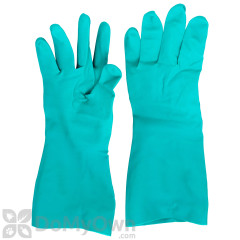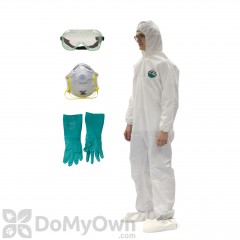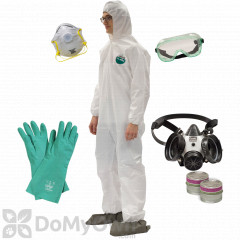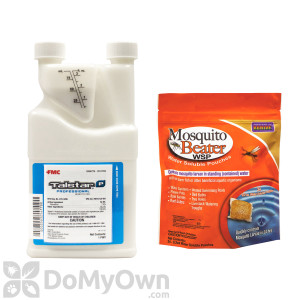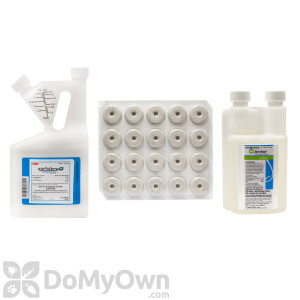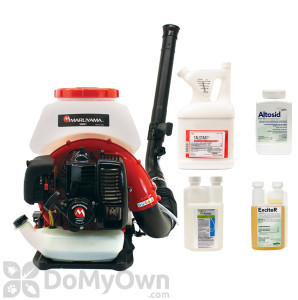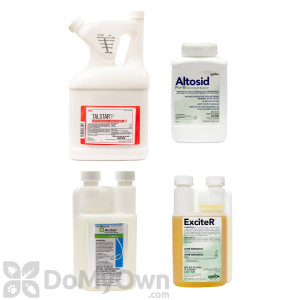The Problem - Mosquito bites cause itching and irritation, and scratching may result in infected sores. Mosquitoes also transmit serious and sometimes fatal diseases to humans and their pets.
Diseases - Encephalitis is an inflammation of the brain that can be caused by viruses. The symptoms of encephalitis can range from mild to severe. Severe symptoms include rapid onset of severe headaches, high fever, and mental disturbances such as confusion, irritability, tremors, stupor and coma. Severe cases sometimes end in death or with survivors suffering permanent loss of limb function, reduction of intelligence and/or emotional instability.
Not all types of encephalitis viruses are carried by mosquitoes. However, mosquitoes carry at least two types of encephalitis viruses that cause human disease in Illinois. La Crosse (California) encephalitis is normally an infection of squirrels and chipmunks; in humans it affects mainly children. St. Louis encephalitis is an infection of wild birds; in humans it affects mainly older adults.
Mosquitoes can also infect dogs with heartworm. The worms live in the heart and can severely weaken or kill the dog. Although difficult to treat, this disease is easily prevented by medication that can be prescribed by your veterinarian.
Prevent Mosquitoes from Breeding Around the Home Mosquito larvae or "wrigglers" must live in still water for five or more days to complete their growth before changing into adult biting mosquitoes capable of transmitting disease. Often, the number of mosquitoes in an area can be reduced by removing sources of standing water. Hundreds of mosquitoes can come from a single discarded tire.
*Get rid of old tires, tin cans, buckets, drums, bottles or any water-holding containers.
*Fill in or drain any low places (puddles, ruts, etc.) in the yard.
*Keep drains, ditches, and culverts free of weeds and trash so water will drain properly.
*Keep roof gutters free of leaves and other debris.
*Cover trash containers to keep out rainwater.
*Repair leaky pipes and outside faucets.
*Empty plastic wading pools at least once a week and store indoors when not in use. Unused swimming pools should be drained and kept dry during the mosquito season.
*Fill in tree rot holes and hollow stumps that hold water.
Change the water in bird baths and plant pots or drip trays at least once each week.
*Store boats covered or upside down, or remove rainwater weekly. Keep grass cut short and shrubbery well trimmed around the house so adult mosquitoes will not hide there.
Only a constant, complete program to control mosquitoes will reduce the numbers, the nuisance and the danger of disease.
Protection from Mosquito Bites
Although many kinds of mosquitoes bite at dusk or at night, some kinds will bite during the day. Almost all kinds will try to bite if you enter an area where they are resting, like high grass.
*When possible, avoid places and times when mosquitoes bite.
*Wear light-colored protective clothing: Tightly woven materials that cover arms and legs provide some protection from mosquito bites.
*Keep trouser legs tucked into boots or socks, and collars buttoned.
*Have good screening: Make sure door and window screens fit tightly and all holes are repaired.
*Use mosquito netting when sleeping outdoors or in an unscreened structure, and to protect small babies any time.
Small impoundments of water can be treated for mosquito larvae with "Bti," a bacterial insecticide. Many hardware stores carry doughnut-shaped Bti briquets (Mosquito Dunks R) for this purpose. Be sure to follow the insecticide label directions exactly.
When participating in outdoor activities where mosquitoes are biting, wear protective clothing (shoes, socks, shirt and long pants). For additional protection from mosquitoes, use an insect repellent. The more DEET a product contains, the longer the repellant can protect against mosquito bites. However, concentrations higher than 50 percent do not increase the length of protection. For most situations, 10 percent to 25 percent DEET is adequate. Apply repellents to clothes whenever possible; apply sparingly to exposed skin if label permits. Consult a physician before using repellents on young children.
Spraying your backyard with an insecticidal fog or mist is effective only for a short time. Mosquitoes will return when the effect of the spray has ended.
Insect light electrocutors ("bug zappers") or sound devices do little to reduce biting mosquitoes in an area.
Installing bird or bat houses to attract these insect-eating animals has been suggested as a method of mosquito control. However, there is little scientific evidence that this significantly reduces the mosquito population around homes.
Some communities conduct community-wide mosquito abatement programs. Whenever possible, the primary effort of such programs should be identification of mosquito-breeding sites, followed by removal or treatment of these sites with an insecticide used for control of mosquito larvae.
For more information, contact your local health department or Illinois Department of Public Health, Division of Environmental Health, 525 W. Jefferson St., Springfield, IL 62761, 217-782-5830, TTY (hearing impaired use only) 800-547-0466.
View all Mosquito Control Products
